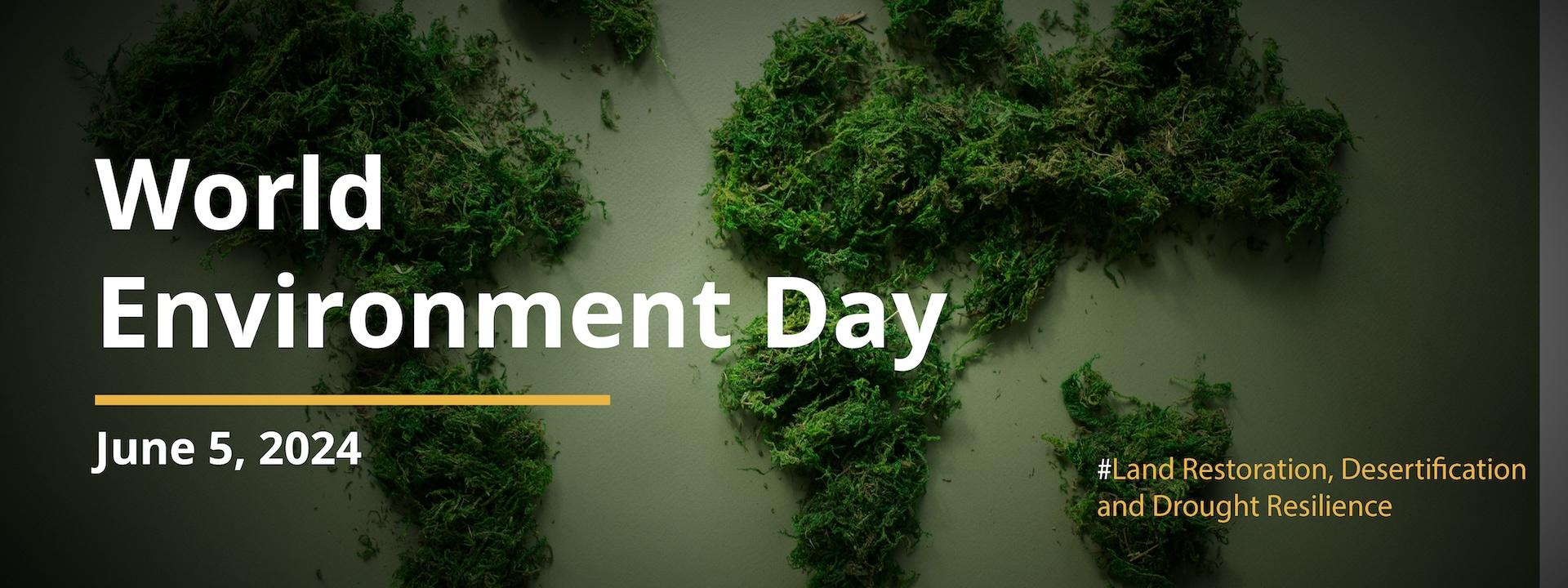#WorldEnvironmentDay2024
Recurrent and severe droughts, along with other natural disasters between 1974 and 1984, caused widespread famine, ecological degradation, and economic hardship in the Horn of Africa. Despite substantial efforts by the countries in the region and international support, the magnitude of these challenges necessitated a regional approach. In response, several United Nations General Assembly Resolutions recommended establishing a regional body in the Horn of Africa. Consequently, in 1986, the countries in the Horn of Africa formed the Intergovernmental Authority on Drought and Development (IGADD) to address the harsh conditions of its Arid and Semi-Arid Lands (ASALs). IGADD was later rebranded as IGAD, expanding its mandate to enhance regional cooperation in three priority areas: food security and environmental protection, economic cooperation and regional integration, and peace and security.
IGAD has been actively implementing a range of projects, programs, and initiatives, both within its borders and in cross-border regions, aimed at addressing land degradation, combating desertification, and fostering resilience. Key endeavors within the agriculture and environmental sectors include:
The IGAD Inland Water Resources Management Programme (INWRMP) resulted in the creation of a regional water policy and information system. It also provided training for numerous experts at the MSc level in integrated water resources management and promoted water harvesting in Arid and Semi-Arid Lands. Additionally, the project concentrated on managing transboundary water resources in the region, fostering collaboration among communities from cross-border areas to adopt conservation and proper utilisation practices.
Through the IGAD Biodiversity Management Programme (IGAD-BMP), IGAD has developed a regional biodiversity policy and protocol, created regional and national biodiversity databases and information systems, and provided training for experts in biodiversity conservation, including wildlife resources and sustainable management technologies.
Comprehensive African Agriculture Development Programme (CAADP). This initiative includes an environment and natural resources pillar, with a Regional Agriculture Investment Plan (RAIP) developed to implement CAADP in the region.
Looking forward, IGAD supports its member states through the IGAD Land Governance Programme, which assists in implementing the AU Land Policy and establishing a Land Administration Information System and a unified land use classification system in the region.
The IGAD Drought Disaster Resilience and Sustainability Initiative (IDDRSI), developed in response to the IGAD Summit Decision of 2011, aims to bolster the region’s resilience against drought and other humanitarian crises. Central to this initiative is promoting cross-border cooperation for sustainable development. By enhancing collaboration among member states, IDDRSI seeks to implement comprehensive strategies that address the root causes of vulnerability. Key strategies include:
- Applying the Relief-Development Continuum Concept with a preventive and holistic approach focused on long-term sustainable development.
- Promoting regional collaboration to enhance resilience.
- Addressing the root causes of drought.
- Increasing investments, particularly in ASALs.
IGAD’s Center for Pastoral Areas and Livestock Development (ICPALD) is spearheading the Sustainable Ecosystem Management Project. This initiative focuses on improving rangeland ecosystem management practices in cross-border areas throughout the IGAD region.
Additionally, with support from the Swedish government, IGAD is enhancing the Blue Economy’s contribution and improving aquatic environmental health by addressing source-to-sea pollution and degradation impacts.
Concerned about the unsustainable use of land and rising wildlife and forest crime, IGAD adopted its Wildlife Management Strategy in July 2017. This strategy aligns with the AU Strategy on Combating Illegal Exploitation and Trade in Wild Flora and Fauna. The Horn of Africa Wildlife Enforcement Network (HAWEN) was launched to strengthen intergovernmental cooperation to combat wildlife trafficking and forest crime, aiming to improve local livelihoods and reduce threats to security, resources, and resilience.
Transboundary collaboration, initiated in 2013, led to the Transboundary Conservation in the Boma-Gambella landscape project. This project enhances governance for the benefit of natural resources and people in the Boma-Gambella landscape, an area renowned for its diverse wildlife and rare species, situated in the cross-border areas of Ethiopia and South Sudan.
Despite national and regional efforts, environmental and land degradation in the region continues unabated, impacting economic, social, environmental, and security conditions. The region’s economy, heavily dependent on agriculture, suffers from the degradation of arable land, water scarcity, and climate variability. Rapid population growth and unsustainable resource use exacerbate poverty. Addressing environmental resilience is crucial for sustainable economic growth.
Therefore, it is essential to embark on sustainable ecosystem management, focusing on preserving the goods and services vital for our existence. Establishing a robust monitoring and evaluation system for sustainable land management efforts at national and regional levels is crucial. Additionally, fostering opportunities for cross-border cooperation can enhance the effectiveness of these efforts, promoting shared solutions and collaborative strategies to combat environmental challenges.
Our Land. Our Future
We are
#GenerationRestoration
Programme Manager – Sustainable Environment Unit, Agriculture and Environment Division at IGAD

